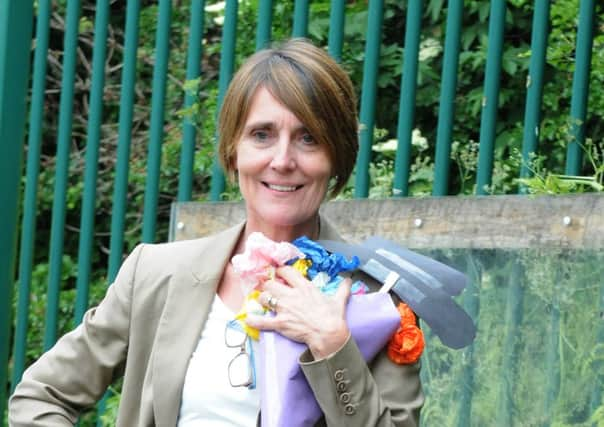Jayne Dowle: Duty to report suspicion could save young lives


Instinctively, as a mother, I’ve got to agree with Keir Starmer. The former Director of Public Prosecutions argues that failure to report suspected abuse should become a criminal offence for teachers and other professionals who work with children. Some people, including the Government, think this is wrong. They don’t want to mess with the system. They say that because reporting of abuse is on the up anyway, compunction is not required. They believe that this should be an issue for individuals to decide, not one which criminal law must enforce.
I can see how “mandatory reporting” might put those who work with children in a dangerous position.
Advertisement
Hide AdAdvertisement
Hide AdArguably, should they fail to pick up on a situation, they could be at fault, and even face criminal proceedings. No one wants an innocent individual to end up with a criminal record for not doing anything.
However, I cannot condone the attitude of Dame Clare Tickell, chief executive of the charity Action for Children, who says that teachers and others who work with children are not “sufficiently trained to see those early signs of abuse”. I’d say we’ve heard enough shocking court cases, to be pretty much aware of what to look for. And it begs the question; if these professionals are not “trained”, then why not? They should be.
My point is this. What possible defence could there be against telling the authorities? Remember, that vulnerable child might not be able to speak for itself. It might be too ashamed or terrified to find the words. Surely, if you are in a position of responsibility or authority, it is your moral duty to shout up if something is not right.
We are encouraged to wrap our youngsters in cotton wool, yet when something as damaging as sexual exploitation, neglect or physical violence occurs, we are not compelled to say anything? I simply don’t see how that can be right, or justifiable.
Advertisement
Hide AdAdvertisement
Hide AdEspecially when you think of all the high-profile so-called “celebrities” who were allowed to get away with heinous crimes against young people for years. A culture of acceptance did much to facilitate this. Haven’t we learned anything from Jimmy Savile, Stuart Hall and the rest?
Child abuse, of any kind, thrives in secrecy. Anything which makes the process more transparent has got to be enforced. And anything which legalises the act of reporting a suspicion cannot be dismissed as tinkering for the sake of it.
As Starmer says, the prospect of a criminal penalty will help to focus people’s minds on what is a deeply uncomfortable issue. We all know child abuse is wrong. Yet few of us have the first clue of what to do if it crosses our path.
As it stands, there is no clear route, no published guidance, nothing which actually makes it easy to blow the whistle. A couple of years ago, I became very concerned about one of my son’s friends. He was skinny. His clothes were dirty. His trainers had holes. He often seemed distracted and his behaviour was attention-seeking. For 10-year-old boys, none of this was that unusual. Yet, there was something about him which worried me. He didn’t want to go home. He made up complicated lies about his parents. One day, he turned up on our doorstep with a black eye.
Advertisement
Hide AdAdvertisement
Hide AdFor weeks I agonised; was it my right to report my fears? And if so, who should I report them to? Would ringing a child-protection helpline be too dramatic an act? Would the situation spiral out of control? My husband urged caution. My friend recommended I speak to another friend, who works in social services. Her advice was to contact the head-teacher at the boy’s school and express my position in an email, so I had a record of the response.
When I did so, she rang me almost immediately and told me that this child was already “on their radar”.
Putting the head on the spot under the threat of a fine or a short prison sentence, as Starmer proposes, wouldn’t have made the matter less difficult. However, the very fact that it would have been easier to navigate, with obvious steps along the way, would have saved time and a lot of soul-searching. And, without wishing to sound overly-dramatic, it could have saved the life of a little boy.
In these situations, we have to remember who we are protecting. It’s not the legal system. It’s not the school. It’s not us and it’s not a child’s parents who should come first. It’s the child. If we recognise this, it will become much easier for us all to do the right thing.